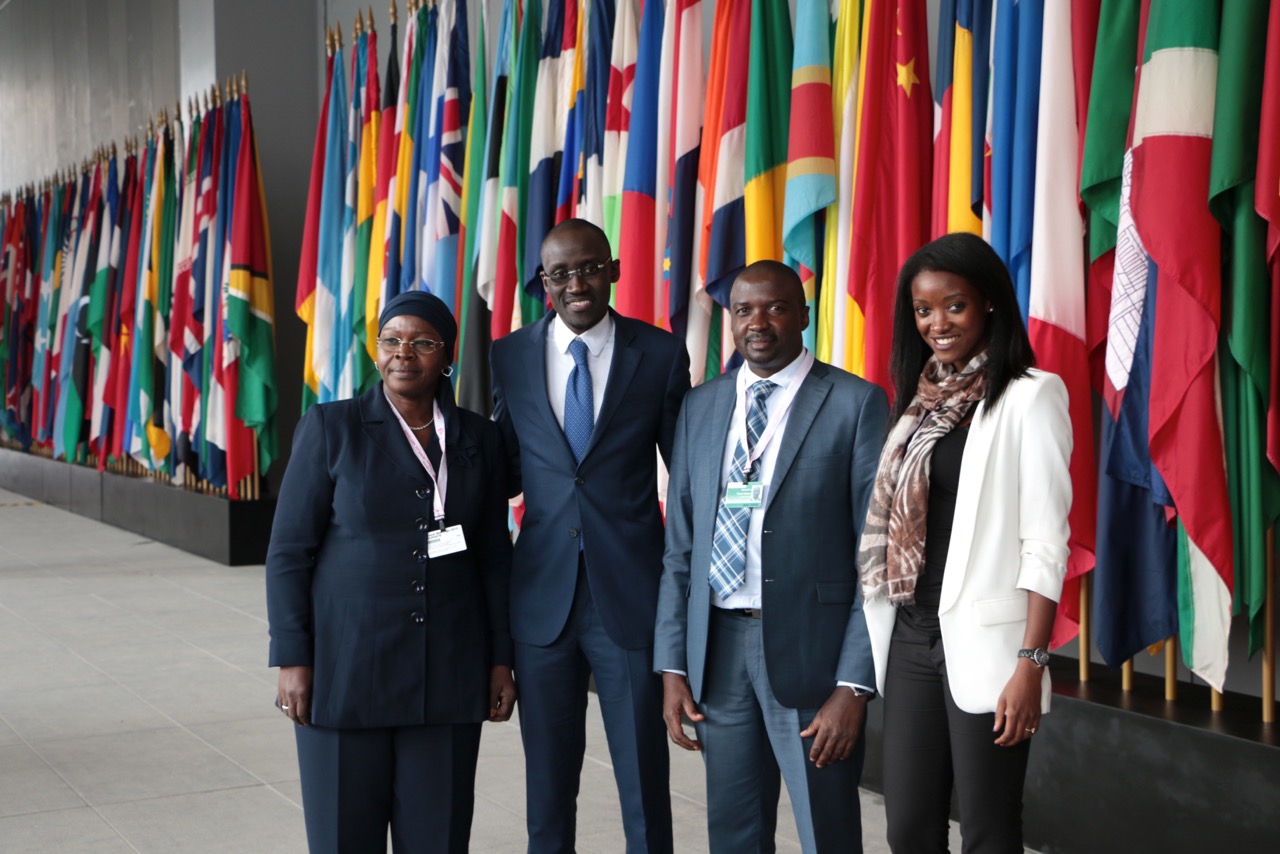As Africa’s middle class starts to emerge, propelled by growth and urbanisation, many diaspora Africans are choosing to return to the continent.
Many of these returnees, known as ‘repats’, are highly educated and skilled, and while they choose to take a chance on new opportunities back ‘home’, the process of adjusting to mentalities and business practices can be brutal.
Nina Keïta was just another African student in Angers, a small city in northwestern France, when she was scouted and became a model in Paris. Although she continued to take classes at ESSCA, the local provincial business school, her transition from teenage life to young adulthood was mainly about go-sees and jetting around, shooting for style magazines and advertising clients in Europe and America.
She was known in the Parisian fashion business as the quiet, gracious girl from Côte d’Ivoire.
By the time she became a full-time model, moving to Paris at 21 to work with her agency Karin Models, she was known in the Parisian fashion business as the quiet, gracious girl from Côte d’Ivoire who was creating seemly modes of existence by subtly promoting her West African values when superficial behaviour was often expected. She became a young woman in demand, even though she wasn’t into drinking, drugs or partying, like some of her fellow models.
When I met her on a magazine shoot in 1999, she told me that she missed Côte d’Ivoire, where she was born, and that her Ivorian family was quite traditional, never really understanding—or fully approving—the fast-paced life she was now embracing as a model. She was constantly on the run, but you could tell from the way she asked questions about foreign cultures that she also loved the discoveries and surprises that came with the non-stop travel.
She always seemed unhappy with the way some agents managed her career.
In 2005, she moved to New York City, where she appeared on magazine covers. She fronted ad campaigns for brands like Old Navy and Cover Girl, and found that she was finally able to save a bit of money. Still, she always seemed unhappy with the way some agents managed her career, and I saw her jump from agency to agency. ‘After I moved to New York,’ she said in a telephone interview earlier this week, ‘I switched agencies a few times. I went from Karin, to Ford, to Wilhelmina, to Next.’
Despite the positive response she got from her clients – magazine editors and fashion marketers – she was never really able to reach supermodel status in New York. She found comfort in being considered a successful model, and the moments of rapturous applause gave her faith in the power of fashion in shaping identity, and perceptions of modern Africans.
She ended up spending nine years on the New York scene, deriving a certain sense of satisfaction from her ability to survive in the Big Apple by working through everyday challenges and instances of discrimination in an industry known for its lack of diversity. Despite the odds being stacked against models of colour, Nina was eventually able to make her mark in New York, securing repeat bookings despite the competition from younger models, and all those new teenagers on the scene.
She had met, through mutual friends, Côte d’Ivoire’s new budget minister, Abdourahmane Cissé.
In 2014, Nina packed her bags and left New York. She wasn’t fed up with fashion, but she had met, through mutual friends, Côte d’Ivoire’s new budget minister, Abdourahmane Cissé. They were the same age, they hit it off, and he offered her a job as his communications advisor.
Now that she was older, she knew that certain social relationships could lead to new professional opportunities. Even though she was still working as a model, she knew that she should take a chance on a new career and learn to work under a rising star in her country’s government.
‘I find that, overall, people are a lot more open-minded than they were when I left the country.’
Adjusting to life in Abidjan was relatively easy, she says. ‘I was never treated as a foreigner. I was never treated differently from other Ivorian citizens, and it didn’t matter that I was coming from New York. I had left Ivory Coast 17 years before I moved back, but because I would always go back home once or twice a year, I never felt like I was out of touch.’
She says that she observed behaviours in Côte d’Ivoire that were similar to what she’d experienced in New York. ‘I find that, overall, people are a lot more open-minded than they were when I left the country.’ She did have one bad experience. As soon as the media found out that she was a niece of the president, Alassane Ouattara, she had to defend herself against accusations of nepotism.
‘It did hurt at the time, and I don’t really like talking about that experience,’ she says, ‘because the truth is that the minister offered me the job without any prior knowledge about my relationship with the president.’ After eight months on the job, that same minister told her that she should apply to business school and get an executive MBA.
She considered Insead and HEC in Paris, but in the end she chose Columbia Business School in upper Manhattan ‘because I’m a New Yorker at heart.’ Earlier this month, she moved back to New York for the 18-month programme.
‘As soon as I get my MBA I want to move back to Côte d’Ivoire and set up a business.’
The dream has changed, and now that she is 34, it’s all about entrepreneurship. ‘As a model, I was already an entrepreneur, because the product was me. Now, as soon as I get my MBA I want to move back to Côte d’Ivoire and set up a business. I want to own and operate shopping centres all over west Africa.’ With fast-fashion labels like Mango now branching out to Abidjan and Dakar, her intention is to start with local franchises in Côte d’Ivoire and take it from there.




